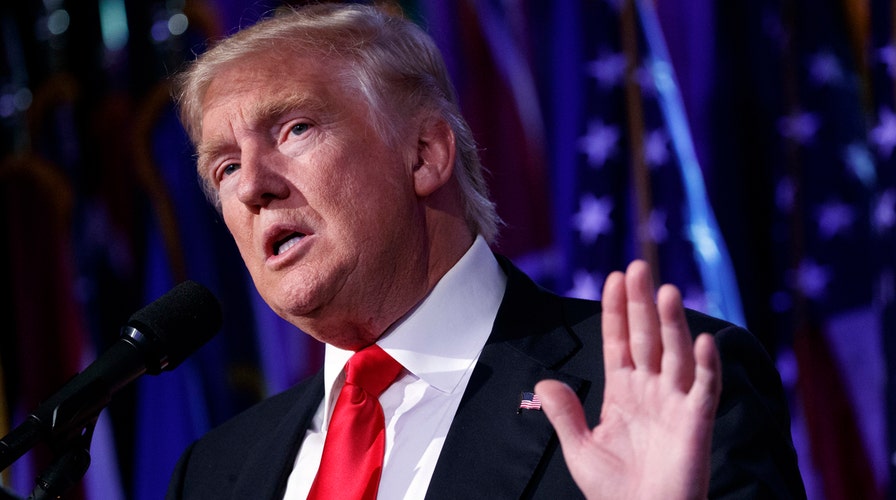Trump team: 'No internal divide' over Cabinet picks
Communications director Jason Miller weighs in on 'America's Newsroom' on outspoken opinions against Mitt Romney
Donald Trump's Cabinet-level choices have the nation's attention, but the president-elect must fill roughly 1,100 other administration posts that also require Senate confirmation - and none are more important than those involving national security.
The high-profile picks offer hints about how Trump might govern, but his transition team's toughest task could be hastily vetting the vast national security team that will serve under his Department of Homeland Security secretary, a post that has not yet been filled.
“It’s the largest, most complex operation on the planet,” said Max Stier, founding president of the Partnership for Public Service, the nonprofit, nonpartisan group that started the Center for Presidential Transition.
National security is always a concern, but the necessity of rapidly assembling a strong team hit home after the 9-11 terror attacks, in which nearly 3,000 people were killed on U.S. soil just eight months after George W. Bush took office in 2001.
Bush’s handoff to President Obama is considered a model for presidential transitions, with Bush’s experience with the deadly attacks early in his administration considered a profound, driving force in his efforts.
Douglas Smith, an assistant secretary at the Department of Homeland Security under Obama, said Tuesday that Trump’s picks to run the department also will have a far-reaching impact on national defense and the direction of the country.
“It’s a very significant, two-tier appointment because the deputy director will also need Senate confirmation,” said Smith, noting the department oversees such agencies as U.S. Immigration and Customs Enforcement, whose responsibilities include immigration, borders security and trade.
“Immigration law will depend on what Trump decides to do here,” Smith said.
He thinks Trump’s Homeland Security and Counterterrorism adviser will also be a key decision.
Among the names being mentioned are Republican Reps. Peter King, of New York, and Mike McCaul, of Texas -- the former and current chairman, respectively, of the House Committee on Homeland Security.
Another agency under Homeland Security is the Secret Service, whose Electronic Crimes Task Force helps protect the country’s financial systems and stop computer-based crimes.
Stier argued that one of the country’s best means to stop global terrorism continues to be monitoring the financing of terror networks, which also involves the departments of Commerce and Treasure, each run by Cabinet-level appointees needing Senate confirmation.
“There are many layers of government that you might not assume are involved,” Stier said several days ago.
Most of the national attention has recently centered on who Trump will pick to be secretary of state, with former New York Mayor Rudi Giuliani and former GOP presidential nominee Mitt Romney in the running.
Smith says that another critical, though less high-profile pick will be the director of the Office of Personnel Management, whose origin dates back to the late-1800s and is involved in recruiting, hiring, training and retaining hundreds of thousands of federal employees.
“Who Trump picks is basically the head of human resources for the entire federal government,” Smith said.
"We're responsible for keeping the government running smoothly -- a responsibility that has daily consequences for every citizen,” says the 5,000-employee agency, which describes its mission as finding and “honoring a world-class force to serve the American people.”
Stier says the smaller, roughly 500-employee Office of Management and Budget is “the center of the government.”
“If you don’t have somebody good in that agency, you’re really in trouble,” he said.





